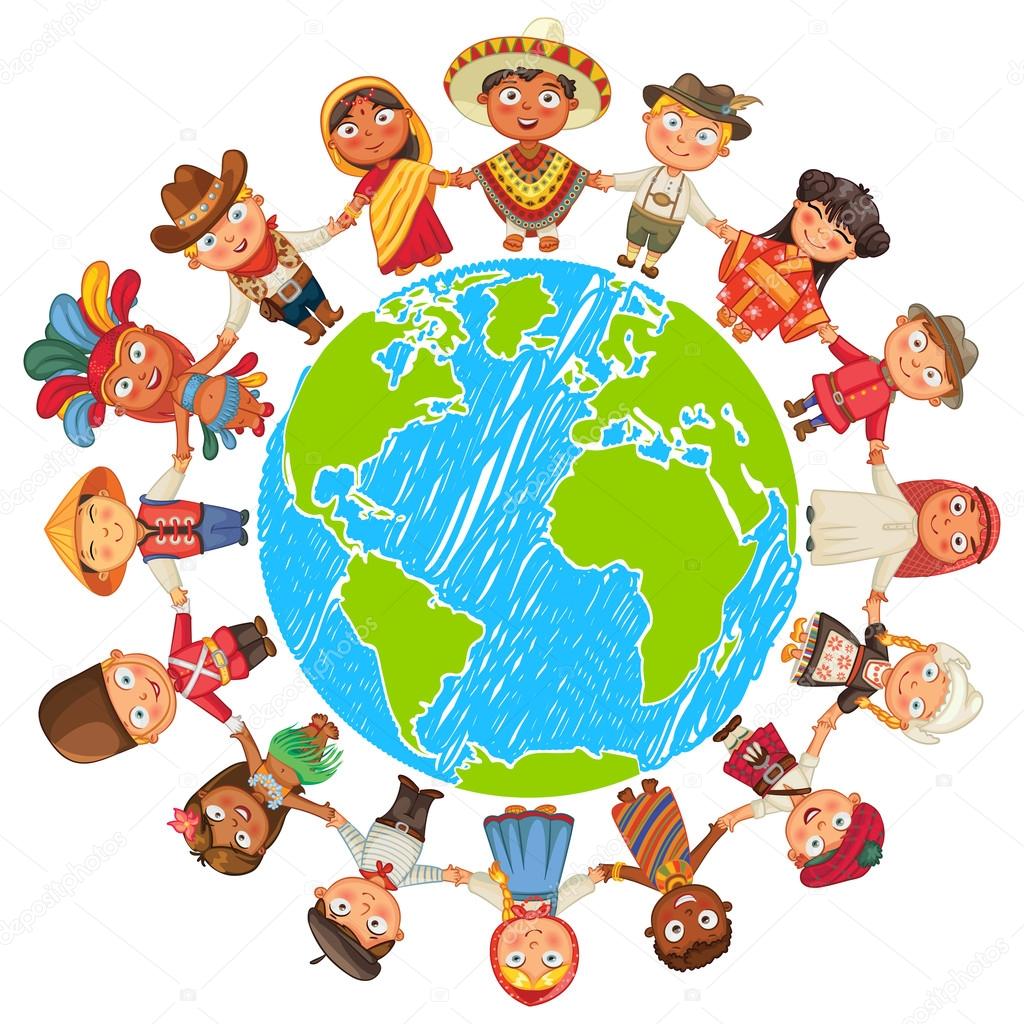
For different people, the term "globalization" has diverse connotations. This topic has long been debated because of its benefits, which are accompanied by major disadvantages. Some people believe that globalization is a dangerous phenomenon that will have devastating consequences for the entire world. Others feel it has resulted in positive outcomes and is a beneficial phenomenon, making the globe more connected and informed than ever before. The same may be said for education. Globalization has had both beneficial and negative effects on education. We are all aware that globalization has significantly altered the global economy, making it more interconnected and interdependent. As a result, the global economy has become more competitive and knowledge-based, and education has become an increasingly vital part of people's lives in all countries. People in developing countries like India are increasingly growing worried about their education. Not only regular people or individuals with higher-than-average incomes who can afford school but also people from rural areas are realizing the value of education and how it is the key to achieving success in today's world. As said by David Litz in his article “Globalization and the Changing Face of Educational Leadership: Current Trends and Emerging Dilemmas “ that
“They will also require leaders to uphold core principles of social transformation (e.g., social justice, equity, etc.) as well as demonstrating visionary capacity, boundary-breaking entrepreneurialism, new professional skills, instructional design, and assessment literacy, and crisis management (Scott & Webber, 2008) in this new global era and this will inevitably necessitate the emergence of a variety of new and important trends in educational management practices and leadership paradigms.” (10)
Hence, the education qualification required to work with a Multinational Corporation is growing every day. This is leading to the growth of education standards across the world.
Globalization has not only made individuals all around the world realize the value of education, but it has also linked teaching methods all over the world. Teachers and academics are continually drawing inspiration from various teaching approaches to improve and simplify the learning experience for pupils. A Cambridge education pattern exists, which is based on the British educational system. Many Indian institutions employ this educational pattern because it is superior to the present CBSE pattern and because the Cambridge pattern is more effective in delivering teachings to students than the CBSE system. People from poor countries prefer to study in countries like the United States or the United Kingdom because they know that if they do, they will be better prepared for life challenges than what their own education systems can teach them. This is mentioned by Joel Spring in his work “Research on Globalization and Education” that “The language of globalization has quickly entered discourses about schooling. Government and business groups talk about the necessity of schools meeting the needs of the global economy”. So, this whole process is helping to strengthen global industries by training and educating more people according to global requirements. People can prioritize worldwide access to school from the primary level to the university level because of these educational advances. This transition aids students in preparing for real-life issues as well as adjusting to multinational standards.

Science and technology are two sectors that have benefited greatly from globalization. As different locations and communities had more opportunities to interact with one another, so did different thoughts and theories, implying that we are not far from achieving the peak of technology. Technology and science have also become the most significant disciplines in school because of this. Most new sectors demand highly educated and qualified people in technology to operate in them, as everything nowadays is done by computers, regardless of whether the organization is tied to technology or not. Globalization is only assisting in meeting this need by assisting various countries in preparing their kids for this challenge. Because the engineering programs given by American colleges are superior to those offered by institutions in other nations, students opt to study in the United States. The programs offered by American universities are superior because, rather than simply teaching students to memorize courses, this country's educational system focuses on providing practical information that will be useful in their future problems. Globalization was the sole thing that allowed students to migrate from their native countries to the United States. Students would not have been able to migrate to other nations for higher education if it weren't for globalization. Even if some could, adjusting to a new country's culture would have been extremely difficult. The concept of the global village, which comes with globalization, makes this conceivable.

Another important aspect of globalization on education is that apart from teaching the student about a specific subject like chemistry or math or physics it helps the educational institutions to teach students how to work in teams as working in teams and being able to collaborate with people is an important requirement of any organization while they are hiring an employee as not everything can be handled by a single entity on a multinational level. With growing global connectedness, students can collaborate not only with individuals in their own country but also with people from other countries. Many international workshops are held, and different schools are invited to participate, as well as many of the organizers bringing Students from both affluent and poor countries together. This aids in the development of abilities such as group dynamics, compromise, discussion, persuasion, organizing, and leadership and management. Also, as different people meet with each other and share their thoughts, this process aids in the global sharing of knowledge, skills, and intellectual assets that are required for diverse advances at various levels.

In their work “Globalization and education: Challenges and opportunities” Bakhtiari, Sadegh, and H. Shajar claim that “globalization is creating opportunities for sharing knowledge, technology, social values, and behavioral norms and promoting developments at different levels including individuals, organizations, communities, and societies across different countries and cultures. “(2). So, globalizing education gives mutual support, supplement, and advantage, resulting in synergy for the diverse countries, communities, and individual advancements. Through the aforementioned global sharing and mutual assistance to serve local needs and growth, it aids in the creation of values and the enhancement of efficiency. Underdeveloped countries might also rise as a result of education. By requesting mutual educational assistance from rich countries, poor countries can train people in their own countries, assisting the people of that country in meeting their fundamental needs while also contributing to the country's economic prosperity. For example, students from India study in foreign nations, and when they return to India, their proficiency exceeds that of the vast majority of workers. This aids in the improvement of a country's operating efficiency. Education also aids in the promotion of international understanding, collaboration, harmony, and acceptance of cultural variation among countries and regions, resulting in the facilitation of interactions and the encouragement of multi-cultural contributions at all levels.
Among all of the advantages of globalization in education, there are also some disadvantages. The first is that globalization in education has the potential to widen technological and digital differences between rich and developing countries. This is because when people go to other nations to study, the vast majority of them want to settle in other countries since they are more developed than their own and provide a better quality of life. When these people settle in already prosperous countries and do not return, they contribute to making an already prosperous country even more prosperous. For example, technology in developed countries such as the United States is significantly superior to that in developing countries such as India. Because the majority of technology companies are based in the United States. This technological divide not only prevents people from benefiting from technical breakthroughs that could make their lives easier, but it also means that any technology they do have is more expensive than in industrialized countries. Furthermore, globalization in education may result in more opportunities for the wealthy countries while initiating a new sort of colonization for the developing countries. For example, Indians who settle in developed countries rather than returning after completing their studies are expanding chances for the developed country by working in large multinational corporations and indirectly contributing to their success. On the other hand, their own country seemed to have been stuck in quicksand, suffocating beneath the weight of the affluent and powerful.
We might conclude that, despite the negative consequences of globalization on education, the beneficial effects outnumber the bad effects. In my opinion, these negative consequences can be mitigated with appropriate planning. If undeveloped countries begin to value those who are deserving, fewer people will leave their home countries and attempt to settle in rich ones after finishing their education. Because undeveloped countries do not show their inhabitants the respect and resources they deserve, technical gaps arise as people do not return to their home countries to contribute to their country's prosperity. This will be a long and slow process, but I believe that with commitment, developing countries can achieve their goal and use education as their most potent weapon, just as developed countries have done. If the underdeveloped countries are able to fix this issue, then globalizing education will benefit them in several ways as mentioned above and maybe they can strengthen themselves and compete with the world superpowers as education is a very powerful weapon. overall, education is very vital in everything because nothing is difficult to achieve with the strength of knowledge.
Litz, David. "Globalization and the Changing Cace of Educational Leadership: Current trends and emerging dilemmas." International Education Studies 4.3 (2011): 47-61.
Spring, Joel. "Research on Globalization and Education." Review of Educational Research 78.2 (2008): 330-363.
Bakhtiari, Sadegh, and H. Shajar. "Globalization and education: Challenges and opportunities." International Business & Economics Research Journal (IBER) 5.2 (2006).



